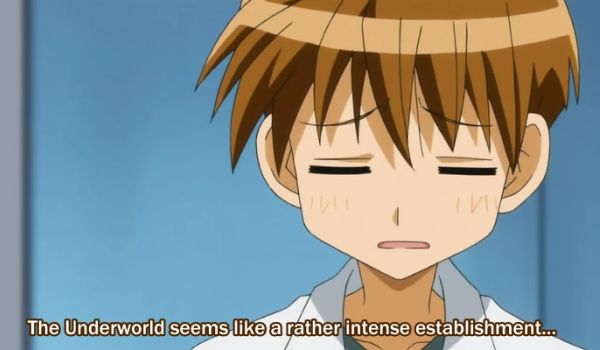“The Underworld seems like a rather intense establishment.” That, I would say, is rather an understatement. Â Dante and Matheson have somewhat different takes on the afterlife, but I would definitely not want to spend a substantial time in the Lower Regions, for instance because of teaching things that are too big for me.
I have written a pretty strong religious entry, but I feel it is a bit above my praygrade, so I am uncertain about posting it. Perhaps I should wait a bit.
Finished reading Matheson’s book, What Dreams May Come. It really is similar to the fourth and fifth dimension in Okawa’s Laws of Eternity. Actually Matheson’s book is older, from 1978, but only by a few years. It seems unlikely that Okawa would base his worldview on it. On the other hand, both of them casually reference a certain Emanuel Swedenborg, acknowledging that he had a reasonable idea of what he was talking about. I would not know, having never had any dealing with the afterlife, to the best of my memory.
Having read the book, I found myself wishing it were longer, or that there were a sequel. Or that Master Okawa would write more books about the spirit world. It seems like a fascinating place. Of course, that would depend greatly on which part of it one landed in!
***
Begun on another e-book, The Candle of God by Rabbi Adin Steinsaltz. He is also the author of The Thirteen-petalled Rose, which I reviewed in February. I was quite impressed by that book, and so I have started reading this one, although it is not a sequel or prequel. The book is primarily written for fellow Jews, but not necessarily theologians, so it is fairly easy to read, at least for me. Â I am not a Jew, of course, but has a passing knowledge of the Torah from reading the Christian Bible, which includes most of the Written Torah.
The fact that the Rabbi is so unabashedly Jewish gives a certain comfort: We know that he does not have a hidden agenda to prove the superiority of Judaism to a religious opponent or challenger. The primacy of Judaism is taken for granted, it is an axiom on which these books rest. So we get a peek into Jewish “mysticism light” as experienced by those who actually live in it. Â It may be esoteric, but it is not obscure. There is no attempt to show off, just to show what he sees. This is an endearing trait in an author of religion or philosophy, where the temptation to add prestige to one’s words is strong and may camouflage itself as concern for the soul of the reader. Instead, his words convey an obvious enthusiasm.
Well, I should finish it before giving any kind of real review, but I find myself looking forward to more of it. But now I need sleep. There is work to do tomorrow, Light willing. And probably some City of Heroes, although if this book is as good as the Rose, I may be end up reading it at home and not only on the bus.

